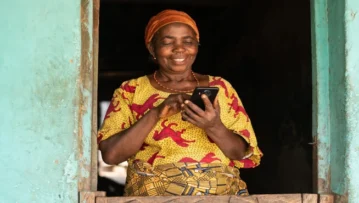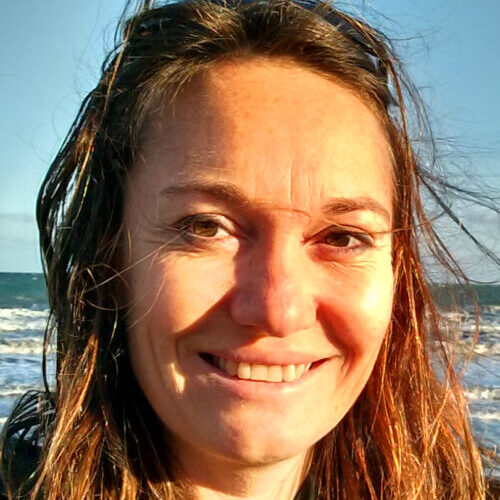2018 was a year of so many firsts for Whose Knowledge?. We ran our first women’s visibility campaign, convened the first conference to decolonize the internet, and collectively wrote our first resource series with some amazing communities and allies. As we look back on the year, we are proud to share some joyful highlights that embody our feminist and anti-colonial values and honor the people and relationships that make this radical re-imagining of the internet possible.
Telling our stories, celebrating our communities

This year we released our first resource series! “Our Stories, Our Knowledges” is a set of guides, tools, and practices to help center the knowledge of marginalized communities on the internet. This series was collaboratively written by members of Kumeyaay and Shoshone, Dalit feminist, and Bosnia and Herzegovina LGBTIQA communities, as well as the Whose Knowledge? team and allies. You can download the full series, read all the blog posts about “Our Stories Our Knowledges”, and navigate all the resources here.
Back in March, we launched a pilot #VisibleWikiWomen challenge to make relevant women visible on Wikipedia and the broader internet by adding their images to Wikimedia projects. Participants added over 800 images of women to Wikimedia Commons during the campaign, and within a few months, 500 of them were being used on Wikipedia. We invite you to read a more in-depth recap of the campaign, take a look at the blog entries about #VisibleWikiWomen, and review and download the resources we created.

Whose Knowledge? was also published in Nature this year! Co-directors Anasuya Sengupta and Siko Bouterse, together with Kira Allmann, co-authored the article “Build an internet for, and from, us all” which appeared in a special edition of Nature on the Digital Revolution this November. The piece highlights some of the challenges and opportunities we see for reflecting the plurality of human knowledges online.
We’re looking forward to producing more publications and resources in 2019. And stay tuned for #VisibleWikiWomen again this coming March!
Decolonizing our frames, practices, and spaces
In July we convened our first Decolonizing the Internet conference in Cape Town. A hundred people from 28 different countries came together to discuss and strategize around decolonization, knowledge, and the internet, from a plurality of perspectives and contexts. You can read the full conference report in English and Spanish, as well as a snapshot summary, and other blog posts.
While in Cape Town, we also organized a panel at Wikimania on “Centering Knowledge from the Margins”. Speakers included the fabulous Persephone Lewis, Thenmozhi Soundararajan, Stan Rodriguez, Dumisani Ndubane, and Kelly Foster, who shared experiences with bringing knowledge from their own marginalized communities online.
Earlier in the year, Whose Knowledge? was invited to keynote MIT’s Grand Challenges Summit, where Anasuya spoke about “Macaulay’s Monster: A Post-Colonial Manifesto of (Digital) Curation and Preservation”. Anasuya also recently received the Internet & Society Award of the Oxford Internet Institute, “in recognition of her innovative use of the Internet as a platform to amplify marginalised voices in the virtual and physical world.” We’re so proud to see her representing Whose Knowledge? in spaces that have too often been missing the powerful voices of women of color from the global South!

You can find Whose Knowledge? clips and presentations throughout the year in our media library. Be on the lookout in 2019 for more audio interviews with our Cape Town conference participants, and a next set of actions around Decolonizing the Internet.
Offering our gratitude
Our deepest gratitude goes to our communities, friends, and allies that have made these many firsts with us in 2018. We are excited to see where these mutual journeys will go next.
We’d also like to thank our funders, the Shuttleworth Foundation, Global Fund for Women, Hewlett Foundation, Mozilla Foundation, and Kindle Project, as well as all the individual donors, large and small, for believing in us and supporting our work this year.
We invite you to keep supporting us and bring others into the fold in 2019!







